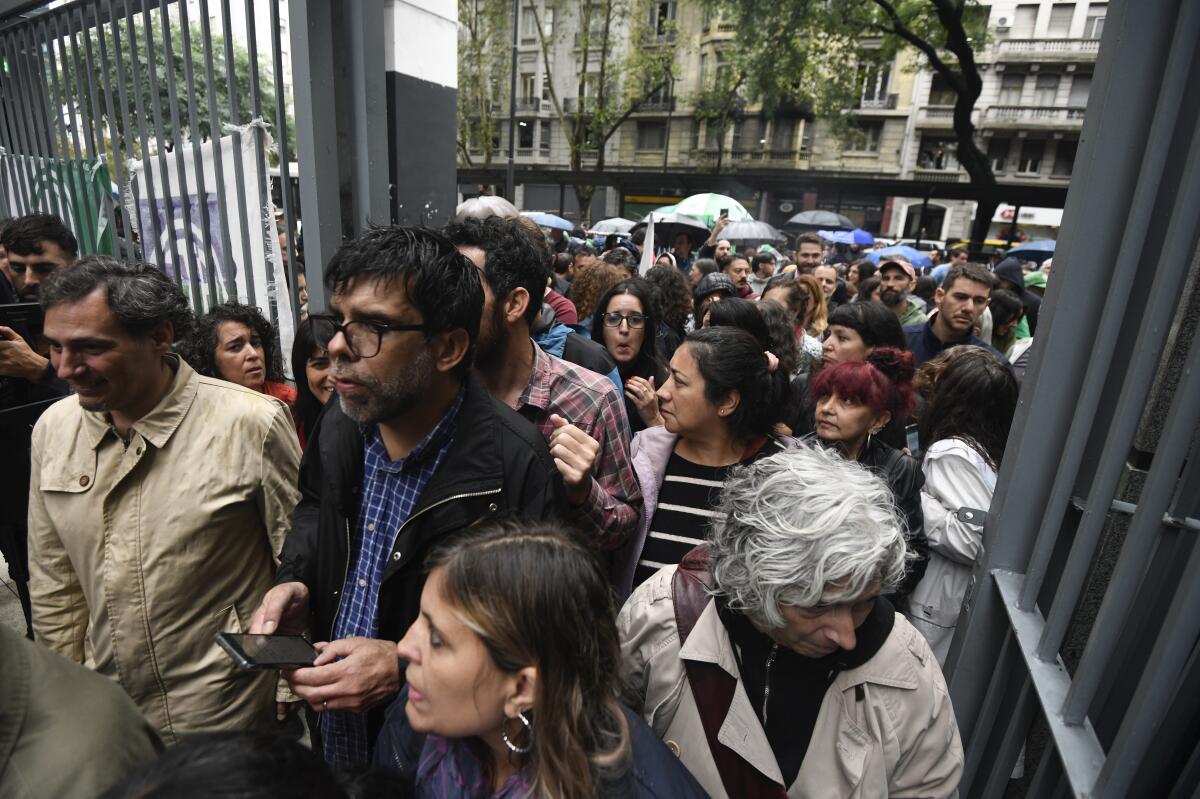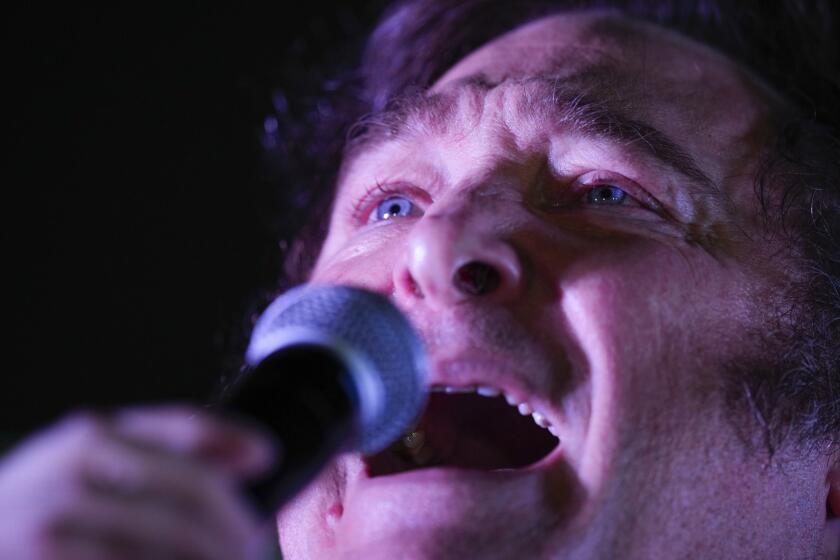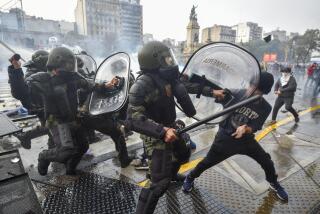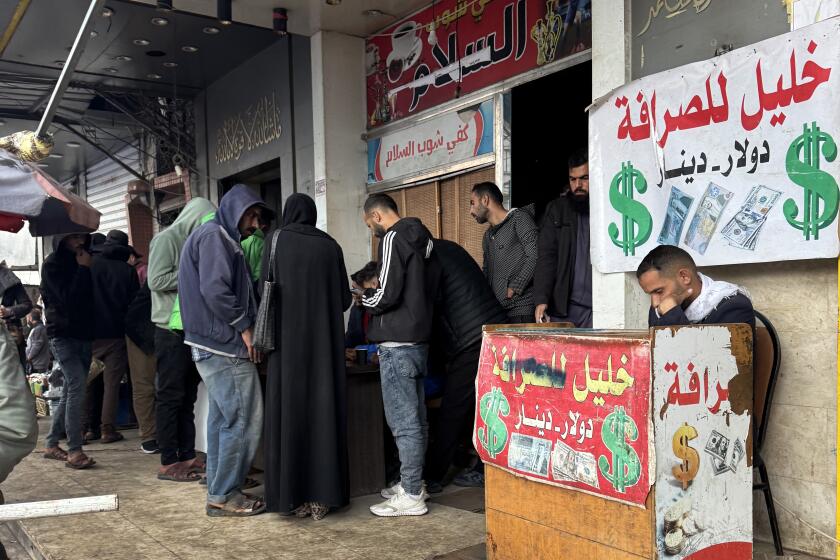Argentina’s Milei takes chainsaw to the state, cuts 15,000 jobs, prompting protests

- Share via
BUENOS AIRES — Argentina said Wednesday that it had cut 15,000 state jobs as part of President Javier Milei’s aggressive campaign to slash spending, the latest in a series of painful economic measures that have put the libertarian government on a collision course with angry protesters and powerful trade unions.
Presidential spokesperson Manuel Adorni announced the job cuts in a news conference Wednesday, describing them as key to Milei’s promised shake-up of Argentina’s bloated public sector.
“It’s part of the work we are doing to reduce state expenses,” he told reporters. The dismissed workers, he added, “perhaps did not have a very defined job.”
Hundreds of defiant employees — some notified of their termination last week and others laid off in previous weeks — stormed into their workplaces in Buenos Aires and nearby cities Wednesday, beating drums, decrying their dismissal as unjust and demanding their reinstatement.
Despite the rain, crowds wearing the green T-shirts of the country’s biggest union leading the pushback, the Assn. of State Workers, or ATE, swelled outside national ministries. In some cases, scuffles erupted as police struggled to evict protesters from government buildings.
Argentina’s annual inflation soared to 211.4% in 2023, reflecting the impact of a series of shock measures by new right-wing President Javier Milei.
“These layoffs have a face, they have a family, they have real needs in this context of great change and great poverty in Argentina,” Mercedes Cabezas, a secretary-general of ATE, told the Associated Press outside the Labor Ministry as demonstrators pumped their fists and chanted around her. “The impact runs very deep because it’s combined with the reduction of social programs, so what we end up with is increasing poverty.”
Milei campaigned for president while brandishing a chainsaw — promising to fix Argentina’s long-troubled economy by chopping down the size of the state. Determined to balance the country’s budget, he has slashed energy and transportation subsidies, halted public works, cut payments to provincial governments and devalued the peso by more than 50% to close the gap between the official exchange rate and the black market rate. Yet that has pushed up inflation, making it even harder for struggling Argentines to make ends meet.
Even before last week, when 41-year-old Hernán Silva still had his job at the National Road Safety Agency that paid a basic monthly salary of $250, he stressed about not having enough money “for anything” as the prices of fuel, meat and medication surged.
Argentina’s next president, Javier Milei, is a culture-warring Trump fan who opposes abortion, calls the pope an “imbecile” and says sex education is a Marxist plot.
“I was barely making it to the end of the month,” he said. After 14 years at the road safety agency, he — and 20 of his colleagues — received a call from his boss on March 27 notifying him that it was their last day. On Wednesday they tried to force their way into their office but gave up when managers threatened to call the police.
“My only plan right now is to fight for my job because this is unfair,” he said.
Despite limited tussles with officers, Wednesday’s protests were largely peaceful. Police were out in force downtown, a reminder of the government’s wider pledge to curb demonstrations that turn disruptive.
Those who burst into public buildings, presidential spokesperson Adorni warned, “will suffer the consequences.”
Argentina’s trade unions — among the sectors most hurt by Milei’s overhaul — appeared undeterred. Some union officials pledged a mass general strike. Fired workers vowed to keep coming to their offices.
“We will continue carrying out forceful measures across the nation,” Cabezas said. “Our fight is just starting.”
Debre writes for the Associated Press.
More to Read
Sign up for Essential California
The most important California stories and recommendations in your inbox every morning.
You may occasionally receive promotional content from the Los Angeles Times.












